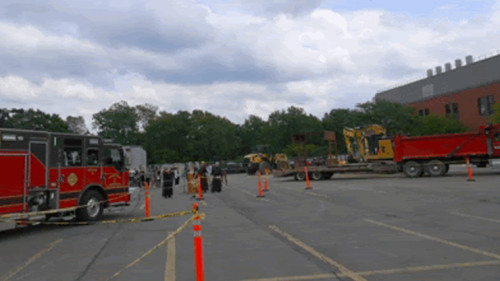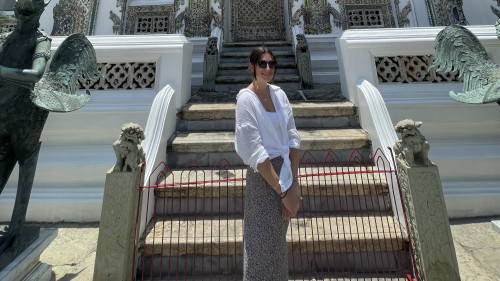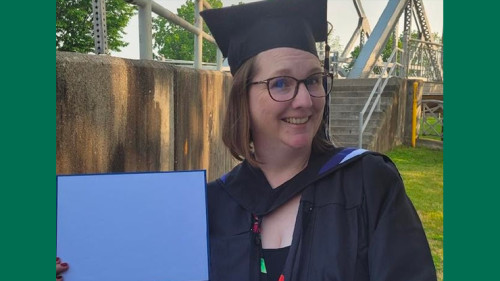
Being in the hospital can be hard emotionally as well as physically. In addition to coping with pain or discomfort, patients can be scared, worried – even bored. Now that visitors are forbidden at hospitals to prevent the spread of the coronavirus, those negative feelings can be even more pronounced.
To help make her patients’ hospital stays less stressful, Meredith Rutsky ’20 has been assembling what she calls Happy Packs at Ellis Medicine in Schenectady, where she is a registered nurse. The brightly decorated gift bags are stuffed with items to help keep patients’ minds occupied while showing them that hospital staff care about their whole well-being.
“This is a really difficult time for people who are in the hospital, even though we haven’t been hit as hard as some hospitals downstate,” said Rutsky. “They can’t have visitors, and even though we set up FaceTime visits and phone calls, it’s not the same.”
Patients receive packs containing fun items like adult coloring books and pens, brain games, crossword puzzles, stress balls, playing cards and more.
“As health care workers, we understand that personal connection is the most important and mutually beneficial aspect of our care, but it’s a taller order now. To that end, the ‘Happy Pack’ campaign was born, inspired by a patient who told me, quite candidly, that he missed his home, his wife, his dog, his freedom, and yes, he was BORED. That’s a huge part of the hospital experience that is often ignored. But now that we’ve all had our lives turned upside down, we can better empathize with these feelings of loss and powerlessness and tedium.”
Rutsky and her fellow Ellis nurses originally funded the Happy Packs themselves, but as the project grew they started wish lists at Amazon and Oriental Trading Company to help keep goodies in stock.
“The need to see to that the emotional needs of patients are met isn’t just specific to this pandemic, so it’s my fervent hope that I can keep this program sustainable for the long term, potentially broadening the scope of distribution to beyond just Ellis.”
The project also has roots in Siena’s Caring Science nursing program, which emphasizes holistic well-being for patients.
“It’s not just about physical wellness, about medical procedures and pharmaceuticals. It’s teaching health care providers to recognize the spiritual and emotional aspects of wellness, too.”
Rutsky said she and her health care colleagues are observing firsthand the toll that a visitor ban – while medically necessary – can take on patients.
“We’re seeing the impact in real time, and we’re trying to bridge the gap and create human connections for our patients.
Spectrum News stopped by recently to check out the Happy Packs project.

